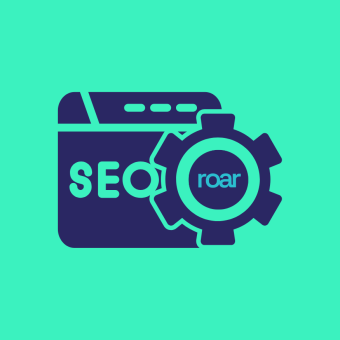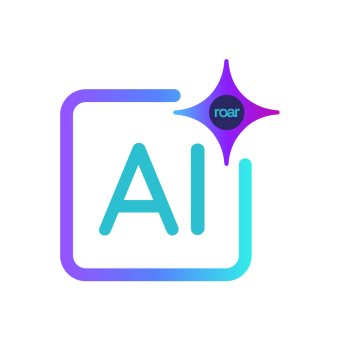AI is now the backbone of search engines and digital marketing. But do you know how AI ranks companies when someone searches for information online? Or how the future of SEO will change with AI? As marketers, knowing how this process works is crucial. Understanding it helps us stay ahead of the competition and makes sure our business is the one users find first.
Brief history of AI
Artificial Intelligence (AI) has its roots in the mid-20th century. In 1956, the term “artificial intelligence” was first coined by John McCarthy at the Dartmouth Conference, marking the beginning of modern AI research. Early AI systems were rule-based, focusing on solving specific problems through pre-programmed instructions.
By the 1980s, advancements in computing power allowed AI to grow, particularly with the development of expert systems—programs designed to mimic human decision-making. The 1990s saw AI systems like IBM’s Deep Blue defeat world chess champion Garry Kasparov, highlighting AI’s ability to surpass human intelligence in specific domains.
The 21st century brought significant breakthroughs, especially with machine learning and deep learning, where AI learns from large datasets to improve performance autonomously. Innovations like Google’s RankBrain, Siri, and Alexa are examples of AI systems that have transformed industries, including digital marketing, by interpreting and responding to human queries intelligently.
In 2022, AI saw a significant milestone with the rise of ChatGPT, an advanced language model developed by OpenAI. Launched initially in late 2021, ChatGPT quickly gained global popularity in 2022 due to its ability to generate human-like text based on prompts. It’s widespread use across industries, from customer service to content creation, marked a shift in how businesses interact with AI. Coming soon (no date announced yet though) is ChatGPT’s newest model as of 2024, GPT-Next, learn more about the AI tool that is said to be 100X more powerful than GPT4.
Today, AI powers search engines, recommendations, and even self-driving cars, making it an indispensable part of both everyday life and business operations. Its evolution from rule-based systems to modern machine learning techniques continues to shape industries and revolutionise how we approach problem-solving and decision-making.
To keep up with all this news? Learn about out unique AI summariser tool.
The role of AI in search engine rankings
AI has made search engines smarter. Back in the day, search engines would simply look for words that matched your search. Now, AI looks beyond words—it tries to understand what the user is really asking.
Take, for instance, when a potential client searches for “best B2B software”. AI doesn’t just list websites with those exact words. It’ll pull up results from companies that are recognised for their expertise, quality, and relevance. This shift in how AI works has made it important for us, as businesses, to think strategically about the information we put on our sites, especially when considering how this new information affects marketing campaigns that include AI optimisation (GEO) and SEO.
How AI collects and analyses data
AI’s process starts with crawling and indexing. Think of it like AI “scanning” each website to gather information. It then stores this data in an organised way. But what’s interesting is where AI gets its information. It doesn’t just look at what you’ve written on your website. It checks things like backlinks, user reviews, and even mentions of your business on social media.
For example, when AI analyses a B2B website, it looks at both structured data (such as meta tags) and unstructured data (like blog comments or social media posts). This means that even your Twitter posts or product reviews can influence your search rankings!
Key factors AI considers when ranking companies
So, what exactly does AI look for?
- Content Quality and Relevance: AI values fresh, relevant content that actually answers users’ questions. So, if your site hasn’t been updated in a while, you might want to refresh it.
- User Experience (UX): We’ve all left a website because it loaded too slowly. AI notices that too. It checks things like your site’s speed, whether it’s mobile-friendly, and if users stay on your site or quickly leave.
- Backlinks and Domain Authority: The more reputable websites link back to yours, the better your site looks to AI. Backlinks are like votes of confidence from other websites.
- Social Signals: Engagement on social platforms matters too. Positive reviews, social mentions, and user interactions can all boost your ranking.
There is a very close overlap currently between things that help a website to rank highly on traditional search engines and on AI models. By optimising for one, you’re likely optimising for both. Optimising for AI is now the priority for most companies.
Machine learning and personalisation in rankings
One of the most powerful things about AI is its ability to learn. The more people interact with a website, the better AI gets at predicting what users are likely to want in the future. It’s like when you search for something on Google, and the results seem tailored to you.
AI personalises these results by tracking your past behaviour. For marketers, this means focusing on customer-specific content. Think about who your audience is and what they’re searching for—then create content that addresses those needs.
How companies can optimise for AI-driven rankings
So, how can you improve your rankings?
- Content optimisation: Focus on providing useful, in-depth content that directly answers common industry questions. Use clear headings and make your content easy to read.
- Technical SEO: Ensure your site is fast, mobile-friendly, and easy to navigate. AI won’t rank your site highly if it’s slow or hard to use.
- Building authority: Aim for high-quality backlinks by connecting with industry leaders, writing guest posts, and getting cited by reputable sources.
- User experience enhancements: Improving your website’s design and usability can significantly boost your rankings. A user-friendly site is key.
The future of AI in ranking companies
Looking ahead, AI will continue to shape how companies are ranked. Voice search and conversational AI are becoming more common, so we need to adapt. Ethical considerations will also play a larger role. We need to ensure our AI strategies are transparent and don’t inadvertently reflect bias. Staying informed about these trends and adapting our strategies will be key to future success.
Another key area will be ranking reports, such as the Roar Gemini Report, which ranks and benchmarks companies against others in them in industry based on how Google’s AI, Gemini, ranks and categorises them. If you’re interested in learning about how AI talks about your company – check out our personalised report.
Conclusion
AI has completely changed how companies are ranked online. Understanding how it works and what it looks for is crucial for any business wanting to succeed. By optimising your content, improving user experience, and staying ahead of AI trends, you can ensure your business stays visible.
AI FAQs
How does AI handle duplicate content when ranking websites?
AI-powered search engines like Google are designed to spot duplicate content, which can negatively impact a site’s ranking. When AI encounters multiple pages with similar or identical content, it tries to determine which one is the original or most authoritative. The duplicate pages may be de-prioritised, and only the original or the version with the most backlinks will rank higher.
For businesses, it’s essential to avoid duplicating content across different pages or websites. Using canonical tags can help direct AI to the correct version of the content, protecting your site’s ranking.
What role does AI play in voice search rankings?
AI interprets voice search queries differently from traditional text-based searches. Voice searches are often more conversational and include longer phrases, so AI has to use Natural Language Processing (NLP) to understand the context and intent behind these questions. This changes how AI ranks websites, favouring those that provide direct answers to common questions or feature FAQ-style content.
To optimise for voice search, businesses should focus on providing concise, clear answers to questions that customers are likely to ask verbally. Optimising for local SEO is also key since many voice searches are location-based (e.g., “Where’s the nearest Estate Agent?”).
Does AI favour larger companies over smaller businesses in search rankings?
AI doesn’t inherently favour larger companies, but larger businesses often have an advantage due to more resources, established domain authority, and a high volume of backlinks. However, smaller businesses can still compete effectively. By focusing on high-quality content, technical SEO, and local SEO strategies, smaller companies can rank well, especially in niche markets or local search results.
Ultimately, AI prioritises relevance, quality, and user experience. Smaller businesses that optimise these factors can rank just as high, if not higher, than large corporations for specific keywords.
How does AI integrate paid ads with organic rankings?
Paid ads (such as Google Ads) and organic search rankings are handled separately by AI. However, there can be some indirect influence. While paying for ads won’t boost your organic rankings directly, increased traffic from ads can lead to higher engagement, which may help improve organic rankings over time. The more users interact positively with your site—longer dwell times, fewer bounces—the better your site will perform in organic search results.
To succeed, businesses should focus on both SEO and pay-per-click (PPC) campaigns. They can work in tandem to improve overall visibility and customer engagement.
Can AI misinterpret a company’s content, and how can this be corrected?
Yes, AI can misinterpret a company’s content, especially if the content lacks clarity or if keywords are used incorrectly. For example, if a business doesn’t use the right structured data or meta tags, AI might categorise the site incorrectly, lowering its rankings for relevant searches.
To fix this, companies should perform an SEO audit to ensure their content aligns with user intent. Updating metadata, improving internal linking, and refining keyword strategies can help guide AI to better interpret the content. Regularly updating and restructuring content also helps AI reassess its relevance.
How does AI assess video content when ranking companies?
AI looks at several factors when ranking video content, such as video metadata (title, description, and tags), engagement metrics (likes, shares, watch time), and the relevance of the video to user search intent. AI also analyses transcripts and closed captions to understand the content within the video. Video engagement signals, such as how long viewers watch the video and whether they interact with it, are crucial for improving rankings.
To optimise video for AI, businesses should use relevant keywords in the title, description, and tags, and ensure videos are hosted on fast-loading pages with clear calls to action.
How does AI factor in a company’s brand reputation and trustworthiness?
AI considers brand reputation and trustworthiness through signals like backlinks from reputable websites, user reviews, and overall online sentiment. Positive reviews, mentions on authoritative sites, and a strong social media presence all play a role in how AI perceives a brand’s credibility.
Companies can build trustworthiness by actively managing their online reputation, responding to reviews (both positive and negative), and ensuring consistent messaging across platforms. Earning high-quality backlinks from trusted sources can further boost a company’s perceived authority and improve search rankings.



